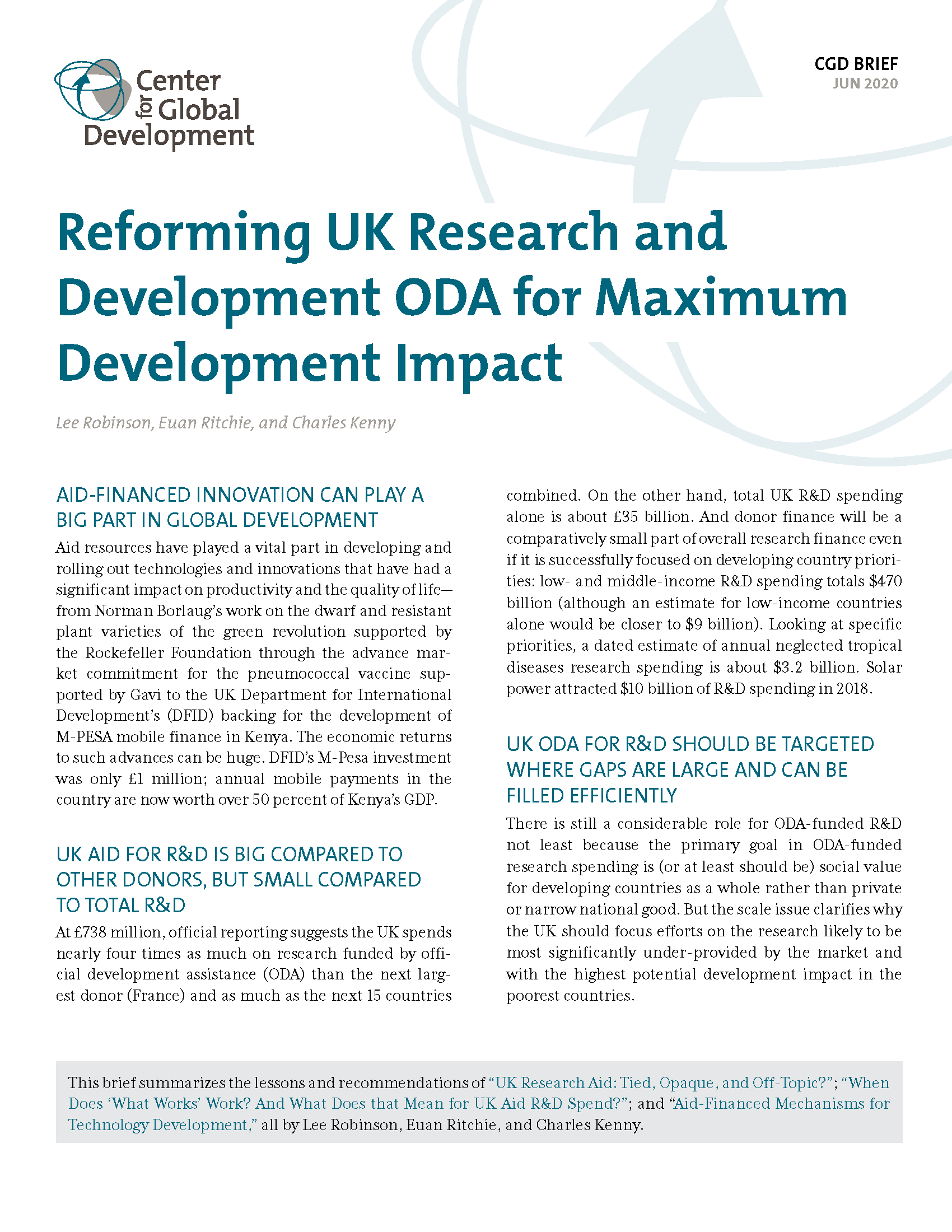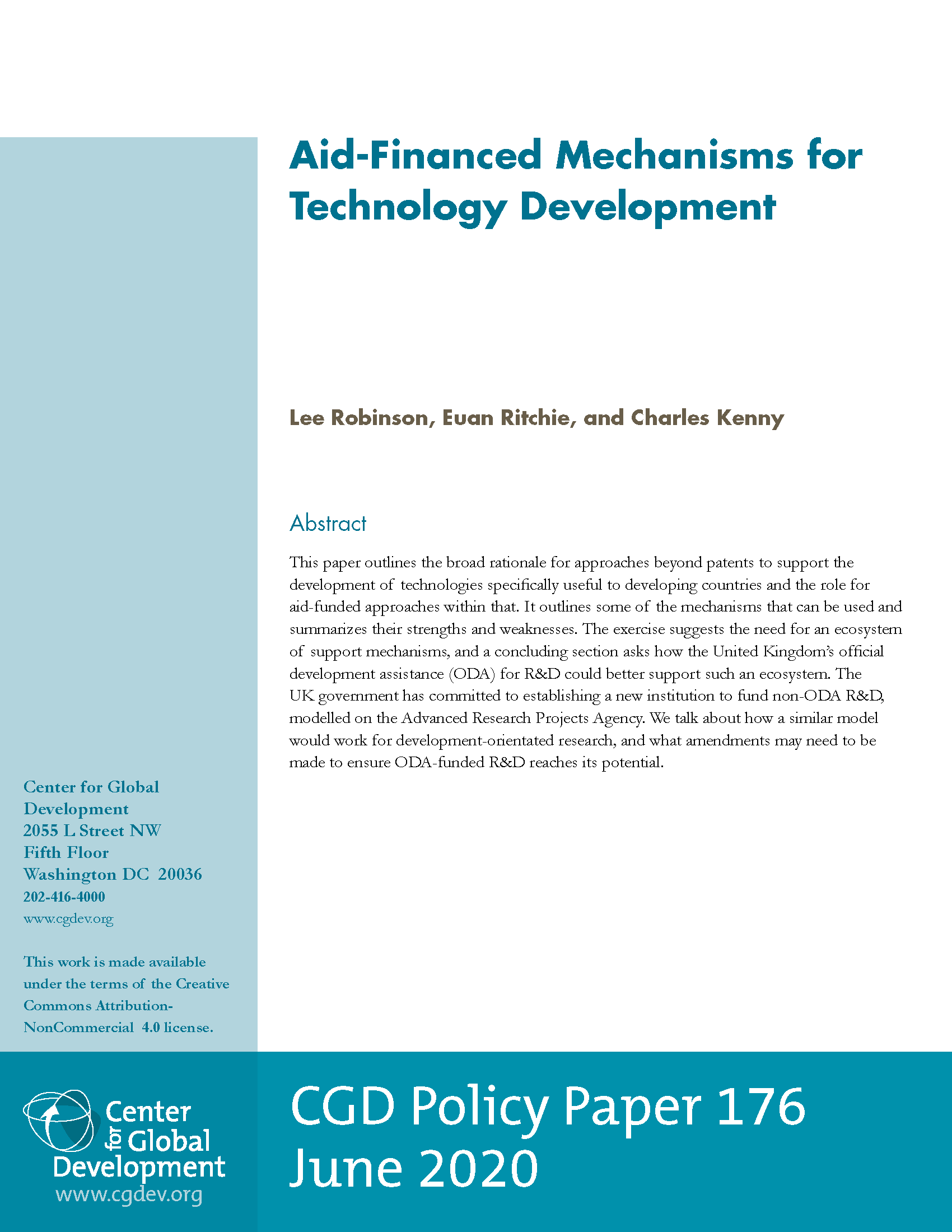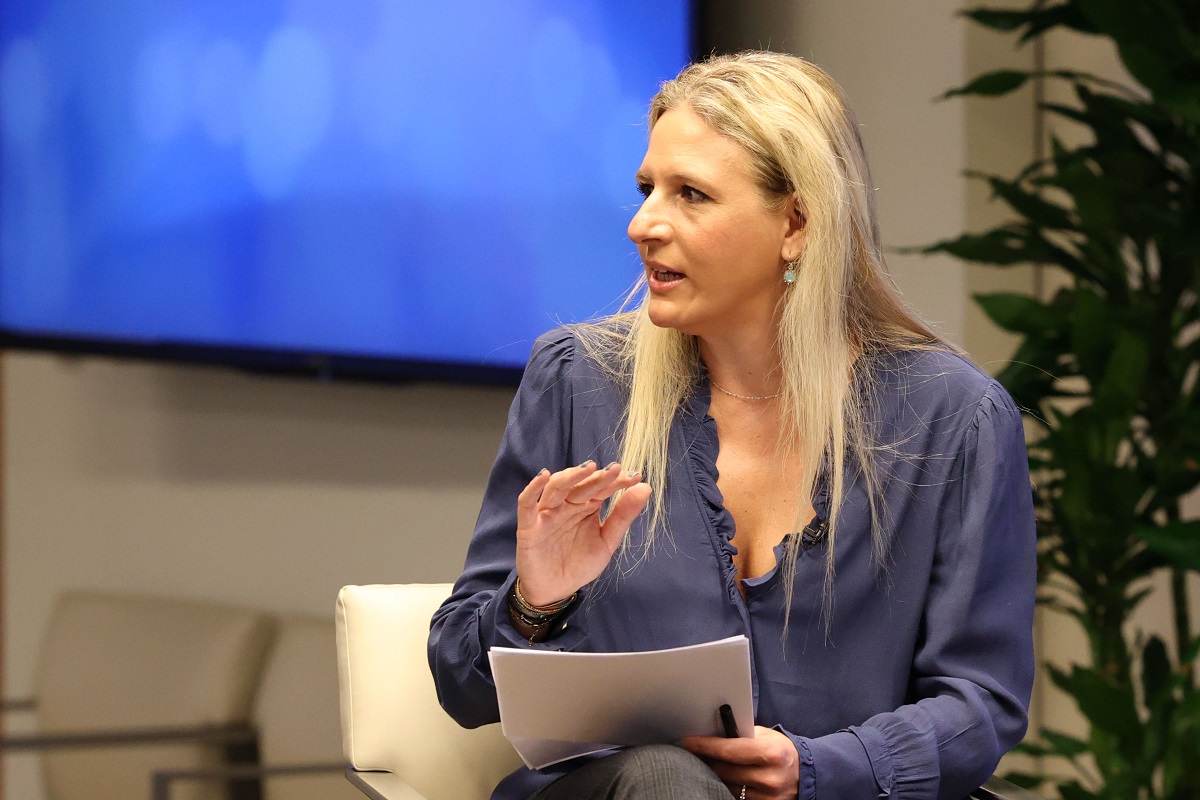Technological advance has been the primary source of global development. Think what the world would look like absent telecommunications, internal combustion engines, vaccines, and antibiotics. And innovation can be directed: set and support a research goal, and progress can be extremely rapid—be that calculating longitude, guiding a missile, or (we hope) developing a vaccine for COVID-19.
Directing innovation to overcome barriers to development in the world’s poorest countries is surely a good use of aid, then. But who should decide the barriers to overcome, and how should the research and development be supported? Today, we are releasing a policy paper and policy brief that suggest some answers in the case of UK aid. To summarize: it is great that the UK leads the world in supporting research through official development assistance (ODA), but the targets of that research should be agreed with those meant to benefit from it, and the mechanisms to provide support should be fit for purpose. We propose establishing a new mechanism under the new Foreign, Commonwealth and Development Office that would include subject experts and developing country representation, to pick achievable but transformative research goals and decide on the best way to incentivize progress towards them.
The right way to support technology R&D
In 2016, the African Union set up a High-Level Panel on Emerging Technology to advise the Union and its member states on the development, use, and regulation of new innovations for economic development. The panel subsequently selected three initial technologies to focus on: gene drives for malaria control, drones in agriculture, and micro-grids to expand energy access. A network of African researchers, civil society organizations, and governments are mapping out the potential and challenges of these technologies in the region (our colleague Gyude Moore has been following this project, analyzing the political economy of adoption of one of these technologies). It is an approach based on priorities set by a pan-African institution, engaging with those who are meant to benefit from the technologies and learning from regional researchers who are best placed to understand the environment in which they will be used. A donor committed to effective aid principles agreed at conferences in Busan, Accra, and Paris would surely want to fund research projects prioritized and carried out this way: with selection led by developing countries, approaches tailored to recipient needs, using local capacity.
Contrast a recipient-first approach to the way that the majority UK ODA for research and development is actually targeted and distributed: based on calls for research in more or less broad areas (“governance” as it might be) that are selected by UK civil servants and academics, and distributed as ex ante budget support mostly to UK universities.
A proposal for change
In our paper and policy brief released today, we suggest a new approach. To decide technological areas for research support, the UK should consider setting up a commission made up of representatives of developing countries, development organizations, and scientific experts to draw up a list of potential innovations that would (i) ameliorate or solve public policy challenges specific to developing countries, and (ii) require comparatively small additional research and development steps to bring to market.
The choice of funding approach should be selected based on its suitability to the particular challenges involved in bringing those innovations to market. There is a role for “push” mechanisms including traditional research grants and product development partnerships, as well as testing mechanisms including support for pilots, evaluation, and scale-up, and “pull” mechanisms including prizes and advance market commitments. An Advanced Research Projects Agency for Development within the new Foreign, Commonwealth and Development Office could provide a flexible mechanism for funding and support across these approaches.
Again, who does the research should be a subsidiary question depending on the area of research and the mechanism of support. But as far as is possible, ODA-funded research should respond to the priorities set by developing countries themselves, and should use country systems to deliver on those priorities. And that suggests a considerable reform agenda for the UK government departments which spend ODA resources on research.
CGD blog posts reflect the views of the authors, drawing on prior research and experience in their areas of expertise.
CGD is a nonpartisan, independent organization and does not take institutional positions.







